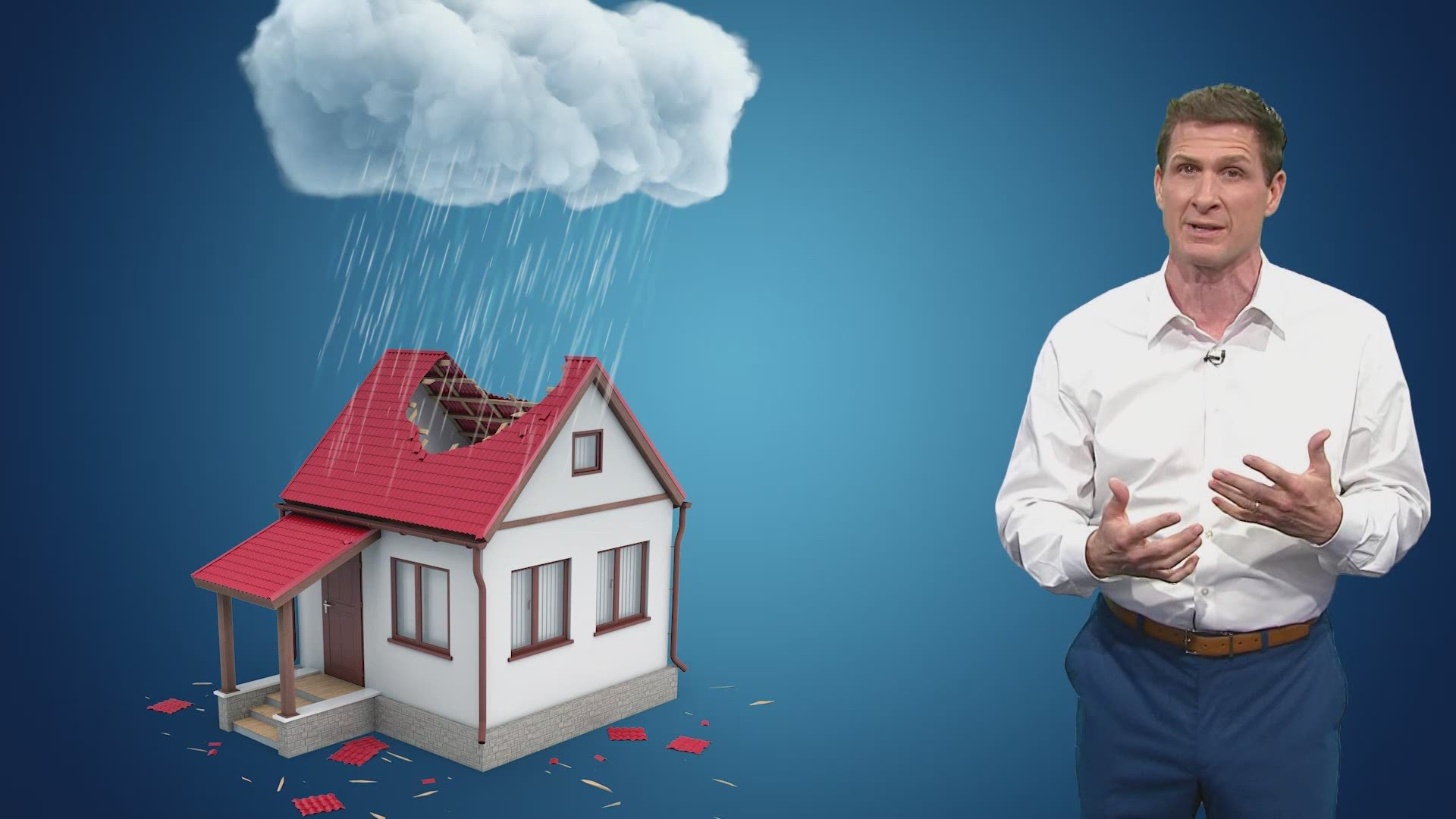DALLAS — Spring has sprung, which means North Texas is in severe weather season again. And that should be a reminder to all homeowners to check their property insurance policies. According to the most recent insurance industry report from the Insurance Council of Texas, the Lone Star state routinely has among the most tornadoes in the country. We also have the fourth-most lightning losses in the nation, and Texas ranks number one for hail events. Here’s the problem: It has been estimated that two out of every three homes don’t have enough insurance coverage.
In 2019, I had a report that included a walk through a Classic Urban Homes construction site to illustrate why so many of us have out-of-date policies. The price of labor and every building material was going up at that time. Those are still rising. Michael Turner, who gave me that tour says in just the last 12 months, a 2x4 stud has gone from $2.85 to $8.10. A $7.25 sheet of plywood for home exteriors is now $32.10.
It's not just lumber; the National Association of Home Builders has data showing that homebuilding materials, in general, are becoming more expensive.
Michael Turner estimates that since our tour here less than two years ago, the cost of building a home has soared an additional 25-30 percent. Because of that, your house may be much more costly to rebuild now than whenever you last reviewed your homeowner’s policy. You want to make adjustments before you have a high-dollar claim.
It is a good idea to regularly review your policy, to go through and actually read it. Look for phrases like “replacement cost." Insurance.com has a lot of really good information on that and homeowner’s insurance in general. Also, talk to your insurer about options. And this is an informative consumer resource page from United Policyholders.

